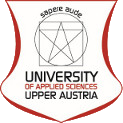Adaptive scheduling in multi-stage production systems with sensor-based predictions for reducing energy consumption
Funded by: FFG
Partners:
- E+E Elektronik GmbH
- Banner GmbH
Synopsis
In this project planning methods are developed for energy reduction in multi-stage production systems with constrained waiting times. Expected reductions are achieved through a combination of data-based predictive models and adaptive optimization algorithms. The predictive models should better estimate the remaining processing times based on data from improved humidity sensors. The adaptive optimization calculates schedules that avoid energy intensive rework activities while reacting to changes in the production or estimations. Production system simulation is used to test and improve the respective dynamic optimization for academic and real-world industrial scenarios.
Abstract
Multi-stage production systems bear a high complexity. The different stages are often (fine)planned independently due to a large number of products/variants and missing exchange of data, but are strongly interrelated. Especially requirements such as maximum waiting times between stages can lead to wasted energy since materials have to be reworked or reproduced if this constraint is violated. Such challenges are found for instance in the wood, process or food industry. The production of lead batteries is another example of a multi-stage and energy-intensive production process with high material consumption. Thereby, lead plates are "ripened" in an energy-intensive heat treatment process. The waiting time before a drying chamber becomes available is restricted too, which implies a high risk of scrap and rework. Similarly, in the production of highly sensitive humidity sensors, fluctuations repeatedly occur that impair the product quality. Additionally, in the application of those sensors, contamination and disturbances occur that reduce the measurement accuracy. The aim of this project is, on the one hand, to identify improvements to sensor quality to be put into use in such a challenging environment with degassing using data analytics and visualizations. On the other hand, the use of those sensors should lead to a better understanding of the energy-intensive ripening process in the production of lead plates. With the knowledge and predictive models gained from these analyses, processing times can be better estimated. With these better estimated processing times, production sequences should be improved to increase resource efficiency and decrease energy consumption. Reduction of energy consumption is planned in reducing processing times in the drying chambers/furnaces, respectively to avoid a re-ripening process due to premature termination. Additionally, repeated material consumptions due to the violation of time constraints in the complex multi-stage process chain will be avoided. Research will be performed on methods for data analysis and visualizations, simulation for the analysis of multi-stage production systems and heuristic optimization for improved planning. With the innovative approach of adaptive planning using sensor-based forecasts for estimating uncertain influencing variables, a significant contribution to energy savings in several industries is enabled.


